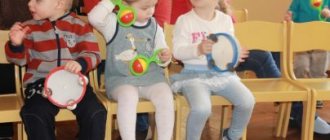Free legal consultation by phone:
8
According to Russian laws, namely in accordance with the Constitution, all citizens under 18 years of age are recognized by definition as children. But before reaching adulthood, children have certain rights and responsibilities. All privileges and obligations available to children are regulated by many legislative acts. For example, the Constitution, Civil, Labor Codes, but in particular the Family Law.
You can download the current text of the Family Code using the link.
When does a child have rights according to the RF IC?
When a person has reached the age of 18, he is, by law, endowed with many rights and responsibilities, but despite his age category, every person has the opportunity to enjoy some privileges. According to the RF IC, a child’s rights arise from the moment of birth, and with age, their list will only increase.
In accordance with the text of the family law, from the moment of birth, the child has the following rights:
- receive a first name, last name and patronymic;
- have citizenship;
- live in a full-fledged family;
- to be respected by others;
- develop comprehensively;
- to receive preferences from government bodies in the form of benefits and allowances;
- be protected by parents or guardianship institutions;
- to have any property.
According to the law, the list of rights of children grows with age. Especially in the following years - at one and a half, at 3, 6, 7, 10, 14, 15, 16 and 18. Along with age and with the acquisition of more and more rights, the child has more obligations. But for his parents, on the contrary, the older their child is, the less responsibility they have for him.
Rights of minor children that are appropriate to their age
Upon reaching preschool age, the child gains the following rights:
- Perform household manipulations.
- Act for your own benefit.
- Make purchases with money received from parents or with parental permission.
Other responsibilities are also added:
- Finish school and get a secondary education.
- Act according to the rules of the educational institution.
At the age of 6, obligations arise:
- To teachers and management of the educational institution.
- For committing acts that lead to public danger, as well as for skipping school subjects and for drunkenness.
- Two years later, a new right appears - to be part of the team of children's public organizations and take part in events.
From the first day of the anniversary (10 years), the child receives new rights to:
- Personal opinion and participation in decision-making in the family.
- To speak at court hearings, to be a witness.
- Consent to change the first or last name, to carry out adoption, to return parental rights.
From the age of 14, a minor has the right:
- receive an identity document - a passport of a citizen of the Russian Federation;
- personally apply to the courts for protection;
- ask for the cancellation of your adoption;
- agree to change citizenship;
- get a job and engage in work activities in your free time from study, but no more than 20 hours a week or 4 hours a day;
- enter into any agreements;
- manage your money;
- open a deposit;
- ride a bicycle and learn to drive a motorcycle;
- take part in youth companies;
- own the results of your intellectual property.
What additional responsibilities does a child have?
- do work;
- comply with school rules and regulations.
From the age of fifteen, a teenager can work, but no more than 24 hours a week.
From the age of 16, a minor has the right:
- Get married or get married with a document from the authorities.
- Work, but no more than 36 hours a week.
- Be a member of a public organization.
- Drive a moped and learn to drive a vehicle.
- To be an adult has legal capacity, but only with the consent of the guardianship and trusteeship authorities.
At the age of 17, a young person is required to register with the military registration and enlistment office.
At the age of 18, a teenager becomes fully capable, that is, an adult!
Interesting: How did the life of Vlad Kudryashov, who cared for his sick mother from early childhood, turn out?
List of basic rights of the child
All rights of children are enshrined in family law, namely in Chapter 11. According to its provisions, the child has a list of rights:
- to be brought up in a family where he will receive development and educational skills. These provisions are described in Article 54;
- a minor has the right to communicate with his parents and with other people with whom he is related. A similar rule is provided for in Article 55 of this code; it applies even if the parents are not in an official marital relationship;
- Article 56 states that every child has the right to count on the protection of his legitimate interests;
- every child, regardless of his age, can express his thoughts and views, and his opinion must be taken into account (Article 57);
- according to Article 58 of the RF IC, the most important rights (to have a first name, surname and patronymic) are vested in him by law from birth;
- in 59 Art. it is indicated that a minor has the right to change his personal data upon reaching the age of 14, when he receives a Russian passport;
- All children from birth have the right to receive a share of housing from their parents. This rule is specified in Art. 60.
Why don't teenagers want to help around the house?
To the question “why?” It’s easy to answer: because they have more interesting things to do! Friends (online and offline), love, games, social networks...
It seems to us, adults, that teenagers are simply lazy and wasting time, but for them all these activities are filled with the greatest meaning. And by the way, I agree with them on this, because they are doing nothing else but searching for their place in our world
means available to them. They leave the family for society, and this is very important for them. And mom’s (less often dad’s) attempt to “return to the family” is completely opposite to the vector of their interest. Even if this vector is supposedly directed inward (like introverted teenagers, quiet ones).
An attempt to turn a child 180 degrees is doomed to failure. The chicken breaks the egg, the chick flies out of the nest, the wolf cub leaves the lair. How do you imagine a mother wolf with the following message: “Go back into your shell and clean it up!”, or a mother wolf: “Put the bones in one corner and sweep the floor with your tail!”
Animals are wiser: birds learn to fly, and wolves learn to hunt. Only people, for some unknown reason, try to keep their cubs at home, near their skirts. The reason is clear - it’s easier to control them and it’s less scary that they will do something to harm themselves.
List of child responsibilities according to the Family Code
What the child does and all his responsibilities at home are determined by the parents. The main thing is that they do not contradict established legislative norms.
Children's obligations include:
- be educated at a basic level;
- observe standards of decency and behavior in various institutions, in particular in educational organizations and in public places;
- fulfill the obligations assigned to him by certain persons;
- always follow the charter of the educational institution where he studies, since violation of established standards of behavior is punishable by punishment;
- register with a military unit for compulsory service. In Russia, these obligations apply only to male children;
- after becoming an adult, provide guardianship, if necessary, to his close relatives, especially needy parents.
In addition to obligations, a young child has an unambiguous responsibility. If he commits any offense, he can be prosecuted from the age of 14 (even criminally). The punishment depends on the topic of the crime the child committed.
Psychologists: in an advanced world - advanced rules
Psychologists easily prove the inappropriateness of teaching girls home skills. They say that times are not the same - contemporaries live in a different dimension and far from the same as their ancestors.
- Firstly, we no longer need many things and objects.
- Secondly, there are smart machines around that do almost everything for us. All you have to do is press the desired button.
- Thirdly, in any matter, in the blink of an eye, you can find a specialist who will do everything that we do not have enough time and energy, imagination and desire for quickly and efficiently.
So it turns out, according to this logic, that there is no need to show a child how to wash or clean the house, there is no need to teach the secrets of cooking or other wisdom. Like, everything in this life is much simpler.
Just dial the right number, and everything your heart desires will be at your door. Pizza or any other food, various products from other groups, ordered on the Internet. Comrades from the cleaning company from the company or from another, where they know what’s what.
Because it’s profitable to live like this, because it’s economical in terms of time and effort. Somewhere like this...
That's how it is. But no one canceled household responsibilities. You can’t always rely on someone else’s uncle.
What rights and responsibilities do adopted children have?
A child in a foster family has equal rights along with other minors guaranteed by law. An important nuance in the rights of adopted children is their legal opportunity to communicate with their biological mother and father. Communication with blood relatives, mom and dad, is possible if guardians provide their permission. When a new father and mother are against communication of their child with his blood relatives, the minor has the right to apply to a guardianship and trusteeship institution.
According to the law, an adopted child has the right to:
- express your own opinion;
- receive protection and support from the state;
- count on the issuance of benefits and the provision of benefits from the state;
- store and possess personal property. For example, photographs of relatives by blood of mom and dad, memorable toys, etc.;
- own part of the property where he officially resides;
- obtain reliable information about biological parents and know that he is adopted;
- choose on your own with whom to be friends and communicate;
- refuse to live with a foster family due to misunderstanding, negative psychological impact, etc.
An adopted child, by law, is endowed with a lot of obligations. The obligations are:
- fulfilling the duties assigned to him at home, if they do not contradict family law;
- perform conscientiously the functions assigned to the adoptive parents;
- follow hygiene rules that meet the requirements of a new family;
- show appropriate behavior.
Adopted minors must listen to the orders of their adoptive fathers and mothers and respect the opinions of other older family members (for example, an older sister). Show respect for the things provided for his use. And take every possible care of the members of the family that accepted him, if necessary.
Children's responsibilities
The duties that every adult member of society has are established by law. These include the obligation to pay taxes, defend the Motherland (by serving in the RF Armed Forces), and respect the symbols of the state. If we briefly talk about what the Family Code provides for the rights and responsibilities of minor children, then some are regulated by law, while others are regulated by morality.
The main duty that children must fulfill is to undergo training and receive secondary education. Thus, the school, in fact, is a kind of place of work for those children whose age ranges from six to seventeen years. In the future, a person has the right to make his own decision about whether to study after 9th grade. If he decides to continue his studies, he enters a vocational school, technical school or higher education institution.
On the other hand, according to most teachers, parents should assign their children to perform some duties around the house, starting from the age when they attend the older groups of kindergarten. Despite the fact that the Family Code of the Russian Federation on the rights and responsibilities of a child does not provide for this, adults who prefer to do all the housework without children's help are mistaken. After all, it is believed that it is thanks to work that a person will acquire such important qualities as responsibility and willingness to accept certain obligations.
In addition to receiving basic secondary education, minor members of society are subject to responsibilities, a short list of which is as follows:
- Compliance with standards of conduct in educational organizations and public places established by law.
- Fulfillment of assigned duties by appropriate specialists.
- Registration for military service within the period established by law.
- Upon reaching the age of eighteen - financial support for their legal representatives if they become disabled.
In addition, the teenager will be legally responsible. The Criminal Code and the commentary to it indicate that it begins only from the age of sixteen. However, if a serious crime is committed, the teenager can receive punishment from the age of fourteen.
Having studied the provisions of Chapter 11 of the RF IC, we can conclude that the rights, and with them the responsibilities of a child, are a kind of relationship of checks and balances. Minors are entitled to many rights that overlap with those provided for in the Convention on the Rights of the Child. In addition, they are assigned certain responsibilities. Failure to do so to other members of the family and society leads to the emergence of various social. conflicts. Therefore, they must also be regulated at the legislative level.







